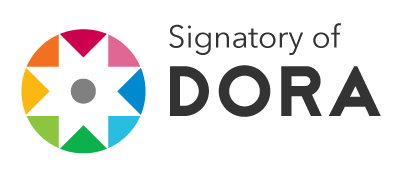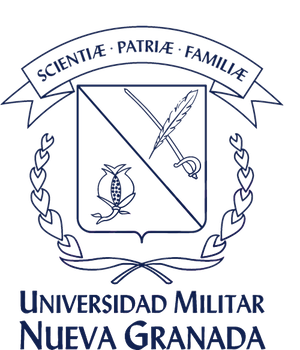Seven fundamental learnings
Abstract
This paper states arguments on the matter of discussing which the seven basic learnings that are suggested by the current educational trends are. Through this document, there will be mentions of the abilities and skills that would allow the students to discern what kind of information they should use so as to perform ideally in an ever changing world. Due to the vast information available nowadays, and due to the many –and easy- ways one could acquire any kind of it, the teacher will have to play a major role in having students develop skills that will let them surf freely through this ocean of knowledge. To begin with, we have based this discussion on the four basic learnings addressed by Jacques Delors: learning how to “know”, learning how to “do”, learning how to “live”, learning how to behave in a social context; all of which are joined in such way that they become a single “overall experience” that seeps in through life, at all levels, and to which three new skills are added in consideration of what the student should develop in the XXI Century.
Downloads
References
Arendt, H. (1998). La Condición Humana. Paidós: Barcelona.
Aspinwall, L. and Staudinger, U. M. (2007). Psicología del potencial humano. Barcelona: Gedisa.
Bauman, Z. (2000). Trabajo, consumismo y nuevos pobres. Barcelona: Gedisa.
Cabrales, O. (2010). Competencias gerenciales para el desarrollo humano. Bogotá: Libros del Páramo, Universidad la Gran Colombia.
Cajiao, F. (2003, 28 de enero). Lenguaje no es clase de español, El Tiempo. Recuperado de http://www.eltiempo.com/archivo/documento/MAM-996499.
Carver, C. S. and Scherier, M. F. (1990). Principles of self-regulation: action and emotion. En E. T. Hig-gins y R. M. Sorrentino (Comps.), Handbook of motivation and cognition (vol. 2) (pp. 3-52). Nueva York: Guilford Press.
Castillo, M. J. (2005). Gestión de innovación, creatividad y desarrollo. Recuperado de http://sisbib. unmsm.edu.pe/bibvirtualdata/publicaciones/administracion/N15_2005/a09.pdf.
Cuadros, R. (2009). Perspectivas sobre el humanismo. Ibagué: Universidad de Ibagué.
De Bono, E. (2008). El Pensamiento lateral práctico. Barcelona: Paidós.
De Bono, E. (1985). New Think. New York: Avon Books.
Delors, J. (1996). La educación encierra un tesoro. Madrid: Unesco, Santillana.
Díaz, J. (2008). La conciencia viviente. México, D. F.: Fondo de Cultura Económica.
Foucault, M. (1994). Hermenéutica del sujeto. Madrid: La Piqueta.
Geavert, J. (1995). El problema del hombre. Sígueme: Salamanca.
Gil, J. P. (2007). Teoría ética de Lévinas. Cuadernos de Materiales, (19). Universidad Complutense de Madrid. Recuperado de http://www.filosofia.net/materiales/num/num22/levinas.htm
Gorz, A. (1991). Metamorfosis del trabajo. Búsqueda de sentido. Crítica de la razón económica. Madrid: Sistema.
Heidegger, M. (2000). Carta sobre el humanismo. En Hitos. Madrid: Trotta.
Isen, A. (2007). Psicología del potencial humano. Barcelona: Gedisa.
Jiménez, C. A. (2008). El juego nuevas miradas desde la neuropedagogía. Bogotá: Magisterio.
Longworth, N. (2011). Lifelong Learning and the Schools: into the 21 st. Century. En N. Longworth and Y. Beernaert (Eds.), Lifelong Learning in Schools: an exploration into the impact of Lifelong Learning on the Schools Sector and on its implications for the Lifelong needs of Teachers (pp. 4-16). Bruxelles: European Lifelong Learning Iniciative [Elli].
Moll, S. (2014). Cinco principios del coaching educativo que como docente deberías conocer. Recuperado de http://ineverycrea.net /comunidad/ineverycrea/ recurso/5-principios-del-coaching-educativo-que-como-docen/fda7ba9e-6f2d-44f6-9fb4-9ea3ce0efa74?rdf
Offe, C. (1985). Le travail comme catégorie de la sociologie. Les Temps Modernes, ().
Pateti, Y. (2007). Reflexiones acerca de la corporeidad en la escuela: hacia la despedagogización del cuerpo. Paradigma. Recuperado de http://www.scielo. org.ve/scielo.php?pid=S1011-22512007000100006 &script=sci_arttext
Piaget, J. (1978). La equilibración de las estructuras cognitivas. Problema central del desarrollo. Madrid: Siglo XXI.
Ponce, M. (2002). La inteligencia, la creatividad y teorías sobre la sabiduría. Revista del Centro de Investigación, 5(019), 63-68.
Rifkin, J. (2004). El fin del trabajo. Barcelona: Paidós.
Saraiva, F. (2009). La ética dialogal de Paul Ricoeur. Recuperado el 1 de agosto de 2014, de http://dspa-ce.universia.net/bitstream/2024/551/1/la+etica+dial ogal+de+paul+ricoeur.pd
Seligman, M. y Csikszentmihalyi, M. (2000). Positive psychology: an introduction. American Psychologist, 55(1), 5-14.
Torres, C. (2001). Grandezas y miserias de la educación latinoamericana del siglo XXI. En C. Torres (Comp.), Paulo Freire y la agenda de la educación latinoamericana en el siglo XXI (pp. 23-52). Buenos Aires: Consejo Latinoamericano de Ciencias Sociales [Clacso].
Zambrano, C. (enero-junio, 2007). Cuerpos, tecnologías y bioética y culturas. Dilemas culturales. Revista Colombiana de Bioética, 2(1), (53-92).













